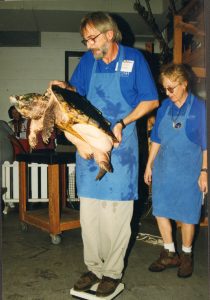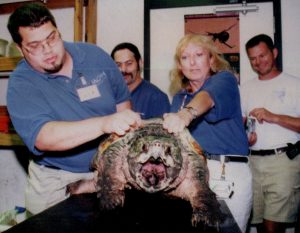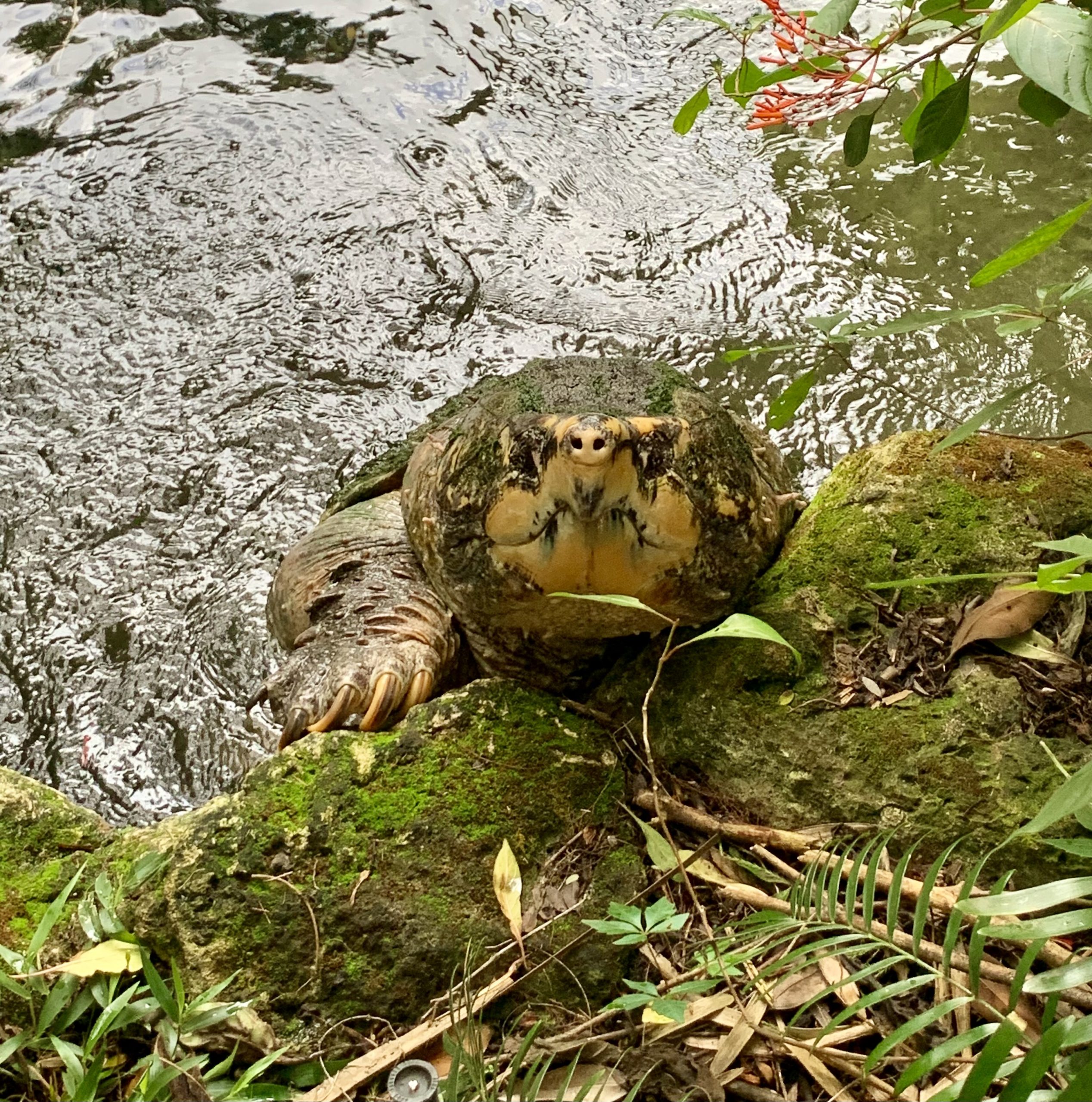Florida Naturalist’s Center Animal of the Month – September 2021

MOSH’s Newest Traveling Exhibit: Da Vinci Machines & Robotics
September 21, 2021
Citizen Science: Getting Started & How to Participate
September 21, 2021Congratulations Tonca!
Nickname: Tonca Truck
Favorite food: Fish. Fish. Fish.
Aspires to: Hold my breath for 46 minutes
A brief history
In 1994, a man named Robert found Tonca, an alligator snapping turtle, in a pond in Jacksonville. MOSH acquired Tonca that same year; he was estimated to be 25 years old and weighed 25lbs. Florida Game and Freshwater Fish Commission conducted a DNA test on Tonca in 1998—showing that he was more closely related to turtles from the Apalachicola and Ochlockonee Rivers in the Florida Panhandle. In 2006, Tonca was moved to his current location in the Hixon Native Plant Courtyard.
Life in the Hixon Native Plant Courtyard
In captivity, alligator snapping turtles can potentially live over 70 years and weigh up to 175lbs. Today, Tonca is 55 years old and weighs 215lbs! He has a nutritious diet consisting primarily of fish, and, on occasion, chicks and rats. The Naturalists do not feed Tonca during the colder months because he enters a hibernation period called brumation. During this time, both his heart rate and metabolic system slow down to conserve energy so that the food he stores in his stomach doesn’t spoil.
Tonca’s favorite hangout spot is under the bridge in the Hixon Native Plant Courtyard. His superpower is the ability to hold his breath for up to 45 minutes. He is covered in algae, which acts as a natural camouflage. Tonca is a mellow fellow until he notices it is meal time. Come see Tonca and his pond friends devour their meals on Tuesdays and Saturdays at MOSH.
About Alligator Snapping Turtles
Alligator snapping turtles live in freshwater systems like swamps, lakes and rivers in the southeast region of the U.S. They live in areas where the sediment is soft with a rich supply of vegetation to hide in. Currently, their International Union for Conservation of Nature (IUCN) status is Vulnerable.This status is due to human interference and exploitation (turtle farming).
Alligator snapping turtles are ambush predators; they have a lure in the back of their throat to attract prey into striking distance. They are also scavengers and play a vital role in the cleanliness and health of our fresh waters.
Our Naturalist Says:
If you come across a turtle in the wild, leave it alone and admire it from a distance. Alligator snapping turtles have a powerful bite force of 1,000 PSI (pound-force per square inch)! If you must save it from crossing a road, make sure you lift it gently on both sides like a hamburger with the head facing away from you. Always place it in the direction it was traveling. Crossing roads is not only a dangerous task for turtles, but for humans too. Please use caution if you must assist a turtle cross the road.


